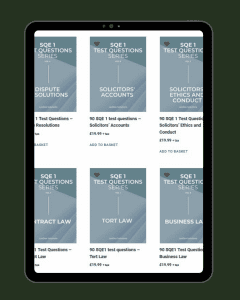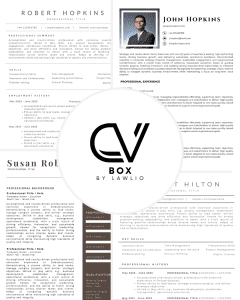SQE1 Scenario questions are designed to test not just your knowledge of law but also your ability to apply it in practical situations. Unlike straightforward multiple-choice questions, scenario questions present complex fact patterns that reflect real-life legal dilemmas. Candidates must analyse facts, identify relevant issues, apply the law correctly, and justify their conclusions — all under exam conditions. Mastering scenario questions is crucial for achieving a high score and demonstrating professional judgment, which is essential for a future solicitor. This step-by-step guide will break down the approach to SQE1 scenario questions and provide actionable strategies to succeed.
Why SQE1 Scenario Questions Matter
Scenario questions simulate the real-world practice of law, testing your ability to combine legal knowledge with reasoning. They appear across all SQE1 subjects — business law, property, disputes, wills, and more. The exam often incorporates ethical dilemmas or client-facing issues within these scenarios, adding an extra layer of complexity. Understanding how to approach scenarios ensures you can handle nuanced questions and avoid common mistakes. Developing a systematic method for reading, analysing, and answering these questions is key to exam success.
Step-by-Step Guide to Answering SQE1 Scenario Questions
Read Carefully and Identify Key Facts
Begin by reading the scenario thoroughly. Highlight parties, dates, legal issues, and any unusual circumstances. Look for red flags such as conflicts of interest, ethical dilemmas, or contractual ambiguities. Misreading facts is one of the most common errors in scenario-based questions. Taking time at the start saves critical points later.Determine the Legal Issues
Once the facts are clear, identify the core legal issues. Are there problems with contracts, torts, property rights, or professional obligations? Include both substantive law and procedural rules where relevant. For example, a conveyancing scenario might test knowledge of client instructions and ethical duties. Write down or mentally note the issues before considering solutions.Apply Relevant Law and Principles
Link the issues to the applicable law — legislation, case law, and the SRA Code of Conduct if ethics are involved. Avoid vague references; your answer should show a clear connection between the law and the facts. Think through how each principle affects the parties and the likely outcome. Scenario questions reward precise application of law over general knowledge.Analyse Options and Evaluate Outcomes
Many scenario questions offer multiple options or require you to recommend a course of action. Consider pros and cons, potential risks, and compliance with legal obligations. Ethical duties may override client preference in some cases. Clearly reason why one option is better than another, as this demonstrates professional judgment.Structure Your Answer Clearly
A logical structure improves readability and ensures marks are not lost. Use headings, bullet points, or numbered lists if allowed, and follow a clear sequence: facts → issues → law → analysis → conclusion. Stick to the facts of the scenario and avoid irrelevant information. Practising structured responses will increase speed and confidence during the exam.
Common Mistakes to Avoid
Rushing through the scenario without noting key facts.
Confusing issues across multiple parties or timelines.
Applying the law too generally rather than to the facts presented.
Ignoring ethical obligations where they arise.
Failing to clearly justify the recommended course of action.
FAQ: SQE1 Scenario Questions
Q1: How are scenario questions different from multiple-choice questions?
Scenario questions test application of knowledge to realistic situations, often requiring reasoning and judgment, whereas multiple-choice questions focus on selecting the correct option from set answers.
Q2: Can scenario questions include ethical dilemmas?
Yes, SQE1 often integrates SRA Principles and ethical challenges into scenarios. You must recognise and apply the correct professional obligations.
Q3: How long should I spend on scenario questions in SQE1?
Time management is key. Allocate roughly the same proportion of time as marks assigned and practise pacing with past-style questions.
Q4: Is memorising the law enough for scenario questions?
No. You must also apply the law to specific facts and justify your reasoning, which requires analytical skill and practice.
Q5: Should I use a structured approach for all scenario questions?
Absolutely. Consistently using a method (facts → issues → law → analysis → conclusion) improves clarity, accuracy, and exam performance.
Q6: How can I practice scenario questions effectively?
Use past SQE1 papers, mock scenarios, and scenario-based training materials to simulate real exam conditions. Review model answers to understand reasoning and structure.
For comprehensive preparation, LexDex Solutions offers a range of SQE1 training materials, including scenario-based practice questions, detailed guides, and step-by-step walkthroughs. Our resources cover ethics, property, business law, and dispute resolution, helping candidates develop strong reasoning and exam technique. By combining structured learning with targeted practice, future solicitors can approach SQE1 scenarios with confidence. Explore our full library to access materials tailored for serious exam preparation.
Excelling in SQE1 is only part of the journey. Once qualified, presenting yourself professionally to employers is essential. Lawlio provides UK-focused CV templates that help graduates and aspiring solicitors showcase skills and achievements effectively. Pairing strong SQE1 preparation with a polished, recruiter-ready CV ensures you are fully equipped to advance your legal career. Explore Lawlio’s templates to create a standout CV that complements your qualification and experience.
Master SQE1 Scenario Questions Today
Scenario questions are challenging, but with the right guidance, they are manageable. LexDex Solutions offers expert SQE1 scenario-based materials designed to build your analytical skills, ethical reasoning, and practical application. Practising with real-style scenarios improves speed, accuracy, and confidence under exam conditions. Don’t leave your performance to chance — equip yourself with the tools top candidates use. Access our SQE1 scenario materials today and take control of your exam success.

